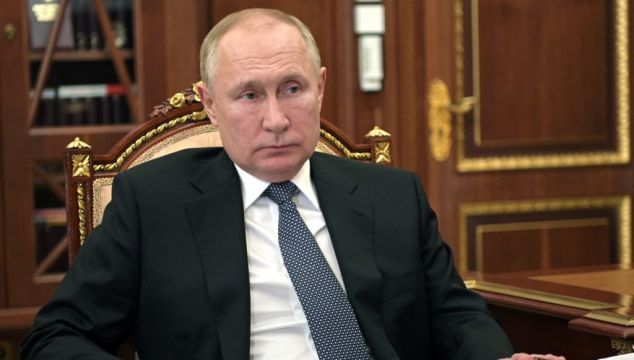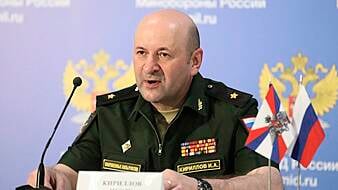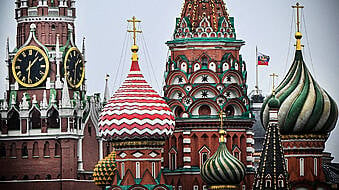A Russian threat to cut off gas supplies to Europe unless buyers paid with roubles by Friday has been averted for now, with Moscow saying it would not halt supplies until new payments are due later in April.
Moscow issued a decree on Thursday requiring foreign buyers of Russian gas to open rouble accounts in state-run Gazprombank from Friday to allow foreign currency to be converted to roubles or else risk being cut-off.
The European Commission said on Friday that European companies whose gas supply contracts with Russia stipulate payment in euros or dollars should not accede to Russia's demand for payment in roubles.
"Agreed contracts must be respected. 97 per cent of the relevant contracts explicitly stipulate payment in euros or dollars. Companies with such contracts should not accede to Russian demands," a European Commission spokesperson said.
The order by Russian President Vladimir Putin cutting off gas buyers unless they pay in roubles does not seem to alter things that much, Italy's Ecology Transition Minister said on Friday.
"If things remain like this, not a lot will change... Putin could show that the Europeans are paying in roubles and Europe could pay in euros," Roberto Cingolani told state broadcaster RAI.
Mr Cingolani said if details came to light in the Kremlin order that ran counter to sanctions or contractual commitments then there could clearly be complications.
"At the moment it does not seem to be like that," he said.
Switch requests
The Kremlin said on Friday it would not immediately turn off gas exports to Europe as payments on deliveries due after April 1st come in the second half of this month and May.
Gas giant Gazprom said it had started sending requests for clients to switch to the rouble payment scheme.
State-controlled energy group Eni is one of Europe's biggest buyers of Russian gas, holding long-term contracts with Gazprom that expire in 2035.
It said on Friday it had received a communication from Gazprom regarding the Russian company's request to switch the currency of gas payments to roubles.
"We are analysing it," a spokesman said.
On Friday, Italian government sources denied reports in some papers that Rome was considering ramping up the state of early warning introduced in late February to a state of alert.
Italy, which sources about 40 per cent of its gas imports from Russia, has been scrambling to find alternatives and diversify its supply mix following Moscow's invasion of Ukraine.
On Thursday Italian Prime Minister Mario Draghi said that while replacing 30-40 per cent of Russian supplies could be done immediately, it would be much harder to replace the rest.
Elsewhere on Friday, Britain and the United States agreed to work on ending dependency on Russian energy, British Foreign Secretary Liz Truss said following a call with US Secretary of State Antony Blinken.
"We agreed that pressure on Russia must continue and we will work to eliminate dependency on Russian energy," Ms Truss said on Twitter.







